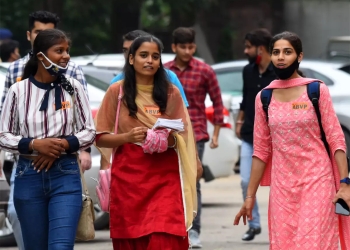In conjunction with the Change INKK Trust, Ashoka University recently held a virtual conference titled “The Dyslexia Mind: Thinking Differently about Higher Education.” Academicians, practitioners, industry professionals, parents, students, and politicians recently addressed approaches for making higher education institutions in India inclusive for students with dyslexia so that they can pursue education without interruption. It is very important that one should pay concern towards a disease worth many lives. Following this, the conference conducted by the respective university garnered a heavy audience, ranging from various ages.
Marie Saddlemire, Assistant Director, Academic Center for Excellence, Access Services, Bryant University, discussed the practical implications of making higher education more inclusive by emphasizing the importance of focusing on all students rather than limiting design concepts to those who have disabilities. They frequently bring a variety of distinct skills and abilities to the table. Learners with dyslexia are known to think creatively, laterally, and with a multisensory lens in the classroom, often coming up with out-of-the-box solutions to real-world challenges.
Education in India is not inclusive; we are lacking in terms of education: SC judge
Despite these advantages, they are frequently excluded from India’s mainstream education system, particularly in higher education, which influences employment. As a result, a policy for universal screening for this learning problem is urgently needed. Employers and industry leaders will be able to profit from the diverse talent that dyslexic candidates can bring to the table. Various different intellects and reputable entities in the medical field were felicitated and were made part of this simple yet significant event/conference.
“Reading acquisition in multiliterate societies must necessitate examinations in all languages of instruction, including the mother tongue,” Dr Chatterjee remarked when asked about the policy implications. “It is imperative that universal Dyslexia and specialized learning disability screening be adopted as soon as possible.” Experts also discussed the importance of encouraging a neurodiverse school population in universities and establishing dyslexia assistance offices in institutions of higher learning.
























